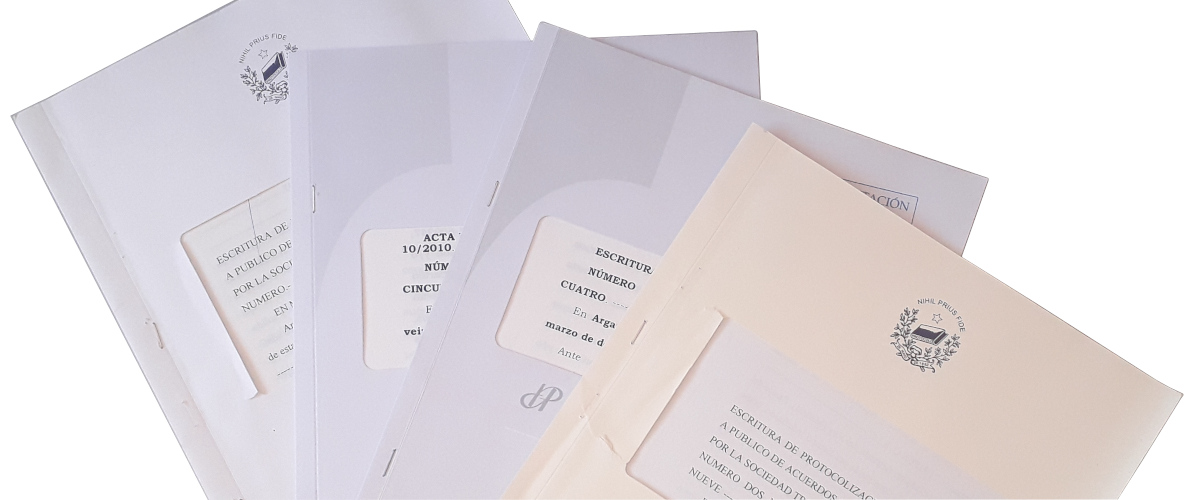Documents that still need to be stored in paper
Although the transition from printed documents to digital formats has been a long-standing trend and has intensified due to the pandemic, it is essential to note that there is still a legal obligation to retain certain documents in printed form. There are also some cases where, while not mandatory, it is highly recommended due to the preferences or requirements of certain professional groups, or because of the security and authenticity they provide.
Here are some examples:
Legal and Notarial Documents: Original paper copies of deeds, powers of attorney, wills, etc., must be kept to guarantee their authenticity. Tax Documents: Some jurisdictions still require that certain tax records be kept in paper format to facilitate audits and verifications. Medical Documents: Medical histories and records are often maintained in printed format to ensure the integrity and confidentiality of medical information, as well as to facilitate access for elderly individuals. Academic Documents: Certificates of degrees, diplomas, etc. Important Contracts: Some commercial agreements and contracts may require a physical signature to be legally binding in certain locations.Protection and Preservation
In both professional and private contexts, adequate protection is crucial to ensure the preservation of documents like those mentioned and to guarantee that they remain in good condition over time without deterioration.
Here are the main recommendations:
Store Documents in Plastic Sleeves and Folders: Undoubtedly, plastic is the best option for protecting documents, not only from dust, wear, and stains but especially from moisture. Paper easily absorbs liquids, which is why it prints so well, but this also makes it very vulnerable to spills, drops, or simply to ambient humidity. All these factors cause irreversible damage to paper documents, even rendering them unusable. However, plastic is waterproof, providing excellent protection for all documents placed inside it.In addition to this, plastic has another significant advantage: it can be transparent, allowing for visibility or readability of documents without the need to remove them from their protector. There are countless models of transparent covers, sleeves, or folders available. If privacy is a concern but you want to enjoy the benefits of transparent protectors, you can use a combination: individual documents placed in their own sleeve, and those sleeves grouped inside an opaque folder or case.

Furthermore, plastic is very durable and resistant, which is a fundamental characteristic when it comes to protecting something— in our case, documents. Equally important: if we manage to protect something valuable very well over a long time using a medium that requires no maintenance and is highly durable... we are talking about Sustainability with a capital "S."
For an individual user who needs just a few protectors, standard models from a stationery store or specialty shop are suitable. However, for a company, it is much better to have a specialist custom-make their folders, sleeves, and envelopes, allowing them to choose each feature (shape, size, colors, accessories, etc.) tailored to their needs and preferences, and of course, with their logos and images.
Choose an Appropriate and Controlled Environment: Once protected within their plastic sleeve or folder, documents should be stored in a cool, dry place, shielded from direct sunlight. Areas with significant temperature and especially humidity fluctuations throughout the year should be avoided. Create and Maintain a Digital Copy: It goes without saying that from day one, a digital copy of each important document should be kept, stored on at least one reliable storage device. Since it costs nothing, it is better to have it on more than one device and in different locations: having one copy on a computer and another on an external hard drive, stored in the same cabinet, is not the best option in case of theft, fire, etc. Digital copies provide backup in case of deterioration or loss of the original document, and additionally, in many situations, a digital copy is sufficient, thus preserving the valuable original for cases when it is essential.
©Triple Q, S.L. 2024-09




